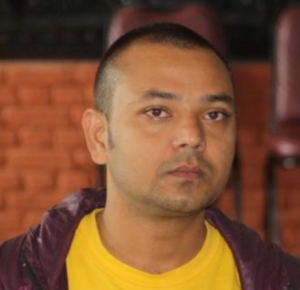Special Issue on Language Planning and Policy

Dear Valued Readers and Contributors,
Greetings!
It is our great pleasure to release the fourth quarterly issue (October-December) of 2022 as language planning and policy issue.
Language planning and policy is the widely discussed and researched discipline of applied linguistics. Decisions and plans about languages made at the highest level by the government can be termed as language planning and policy. McGroarty (1997) claimed “the combination of official decisions and prevailing public practices related to language education and use” (p.1). Language planning is not static but rather embedded in the changing social context. It is inevitable for any government in the present world because it is associated with the notion of language development in a country.
Nepal is a multilingual country because different cultural groups speak different languages. While administrators consider multiple languages of students as a challenge and try to avoid them using dominant language/s, researchers and scholars on the other hand consider home languages of students as a rich resource and urge to use them in teaching learning. In order to explore more on this policy practice tension and contribute some in the ongoing discourse, we are presenting you this special issue on ‘language planning and policy’. In this issue, we have incorporated an interview and four articles related to language planning and policy in Nepal from researchers, scholars, educators and practitioners to bring multiple perspectives on the issue.
In the exclusive interview, Prem Prasad Paudel has argued that Nepali parents and stakeholders have a false belief that education in English is of better quality and higher status. He dives deep into the motivations, impacts of EMI and offers some future directions to policy/practices/research direction in it.
Mohan Singh Saud in his article explored the EMI practices of some public schools in Nepal. He asserts the need of mother tongue-based education, especially up to basic level (1-5) education for preserving the linguistic human rights of children.
Similarly, Tek Mani Karki has discussed some examination practices in EMI policy adopted by community schools in Nepal through his qualitative study. Students struggles to comprehend test items in English questions the students’ accessibility to content learning in classroom and performance in assessment. He has also discussed washback effects of such assessment practices.
Moreover, Basanta Kandel has critically reflected on the mismatches in educational language policy and practices in schools in rural Nepal by adopting the critical ethnography research design. He argues that the local government’s educational language policy and practices in the schools seem inconsistent, with spaced conflicts amid monolingual, bilingual, and multilingual educational policies and procedures.
Additionally, Dinesh Panthee has discussed the processes and practices of language in education policy in the local governments of Nepal and argues of having inconsistency between policies and procedures of language in education policy in local governments of Nepal. He brings up the administrative and managerial inability/ignorance to implement local language policy in schools.
For your ease of access, below is the list of hyperlinked articles:
- Structural conditions are responsible for parental agency to influence the uncritical adoption of EMI: Dr. Prem Prasad Poudel
- Is English in Education a Medium of Instruction or Destruction? by Mohan Singh Saud
- Examination Practices in English as a Medium of Instruction School by Tek Mani Karki
- Mismatches on Educational Language Policy and Practice: A Critical Reflection by Basanta Kandel
- Language in Education Policy at Local Level of Nepal by Dinesh Panthee
Finally, I would like to thank our co-editor, Ekraj Koirala, for extending invaluable support throughout the entire process. We jointly are thankful to all our editors and reviewers, Ganesh Kumar Bastola, Mohan Singh Saud, Ashok Raj Khati, Jeevan Karki, Sagar Poudel, Jnanu Raj Poudel, Karna Rana and Rajendra Joshi for their relentless effort and contribution.
ELT Choutari is a platform for researchers, scholars, educators and practitioners to share their perspectives, practices and stories from classrooms and communities. We encourage you to contribute to our anniversary issue (Jan- March) and send your articles and blogs at 2elt.choutari@gmail.com
If you enjoy reading the interview, articles and reflective stories, please feel free to share in and around your circle, and of course, drop your comments in the boxes below.
Happy Reading!
Thank You.
References
McGroarty, M. (1997). Language policy in the USA: National values, social loyalties,
pragmatic pressures. In W. Eggington & H.Wren (eds.), Language policy: Dominant English, pluralist challenges. John Benjamins.

